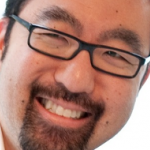A short year ago, DevOps was considered to be in its infancy, and if you were a major organization outside of the “unicorns” and early adopters experimenting with DevOps models and continuous delivery, you were well ahead of the curve. A testament to the fast-paced world IT leaders operate in today, DevOps practices are now being implemented by the most recognized brands across every major industry vertical and playing a significant role in culture, leadership, and business transformation.
The Enterprisers Project caught up with Gene Kim, award-winning expert and author on all things DevOps, to discuss how IT organizations and CIOs are evolving as DevOps continues to gain traction, as well as the key challenges enterprises face as they seek to bring more lean principles into IT. He also shares what he's most looking forward to at the second annual, bigger and better DevOps Enterprise Summit in San Francisco (see promo code for discounted registration at the end of the article).
The Enterprisers Project (TEP): Last year, you told us that your goal for the DevOps Enterprise Summit was to showcase the great examples proving that DevOps is for all organizations – not just the tech giants like Facebook and Google. Have you noticed a change in the way enterprises are now talking about or implementing DevOps, or is there still widespread hesitation in the enterprise community?

Gene Kim: Absolutely. Last year, I was so amazed at the 50 leaders who shared their enterprise DevOps transformation stories on stage, at all stages of the journey. This year during our call for presenters, we had over 240 speaker submissions — it's impossible for me to overstate the quality of submissions we received. We got submissions from CIOs, enterprise architects, directors of development, directors of operations, from organizations that we’ve all heard of: Cisco, Sherwin Williams, The Walt Disney Company, Target, Nationwide, Western Union, US Patent and Trademark Office. (I especially love that you might not necessarily expect some of these organizations to be leading the way in DevOps!)
Also, we’re doubling the size of the conference this year, expecting about 1,500 attendees. I think that shows that there is an ever-growing interest and appetite for trying to understand how DevOps can be adopted in large, complex organizations. They’re saying, DevOps isn’t just for unicorns like Netflix, Amazon, and Google, but DevOps is for any organization that is reliant upon technology —which is basically almost every organization on the planet.
TEP: Now that the DevOps Enterprise Summit is in its second year, how will the 2015 event build on the key learnings from your inaugural Summit?
Kim: I asked every speaker last year to end their presentation with a slide with one of the two titles: either “Here’s what I don’t know how to do” or “Here’s what I’m looking for help with.” I wanted to get a better understanding of the biggest challenges facing the DevOps Enterprise community, and I was able to identify five key areas of focus. These include automated testing for legacy applications, DevOps culture and leadership issues around transition, organizational roles and responsibilities, security and compliance practices, and metrics for measuring improvement for DevOps initiatives.
These five problem areas became the focus points for the DevOps Enterprise Summit 2015 — we very intentionally selected talks that touched on as many of those key areas as possible. And because of the universality of those problems, we decided to have 15 dedicated talks from subject matter experts on each of these five problem areas.
Incidentally, this made selecting speakers that much more difficult, because we had 15 fewer slots for experience reports! But we believed that if we could find the best people in the game in these five areas, we could help everybody elevate the state of those practices inside their own organizations.
We think they will provide a tremendous amount of value to the DevOps Enterprise community, and we plan to replicate the exercise of asking all of our speakers to share their biggest challenges this year in order to shape the DevOps Enterprise agenda next year.
TEP: How do you see DevOps changing the role or requirements of today's CIO?
Kim: When you take a look at some of the cultural issues on transitioning to a DevOps model, what jumps out at me most when I'm listening to senior executives talk is that it comes down to enabling high-trust cultures throughout the organization. In many ways, setting the cultural tone for the organization is one of the top jobs for any leader.
The skill sets that are going to be important for these next-generation technology leaders are changing. As more organizations adopt DevOps, I think they will quickly realize that no success comes from the command and control model of most traditional MBA curricula. It's about guiding and enabling, and really setting the conditions for the organization to experiment their way to success.
(By the way, Jim Whitehurst wrote a great book on this, called “The Open Organization,” which I love. The fact that it’s written by the former COO of Delta Airlines makes it an especially credible and important read.)
TEP: Finally, what are you most looking forward to at the Summit this year? What makes the event a "must-attend" for technology leaders?
Kim: I was just reminiscing with the Target DevOps team about last year's DevOps Enterprise Summit, and they said one of the things they were most grateful for was the opportunity to connect to kindred spirits and fellow travelers that were facing the same battles.
For me, it was incredible to see how Team Target and Team Nordstrom were inseparable for the three days of the conference. My interpretation is that the DevOps Enterprise community is indeed an amazing and unique group of people. They are the courageous leaders who are driving transformations that often go against bureaucratic command-and-control systems within their organizations.
I'm looking forward to seeing that again this year – people putting aside their differences or even competition and really coming together as change agents. There’s just a lot of knowledge sharing going on, and it's inspiring.
Throughout my career, I’ve never learned as much as quickly and comprehensively as I did at the last DevOps Enterprise Summit. This year is going to be bigger, more focused on the key challenges organizations are facing now with DevOps, and better than ever. It’s going to be a great three days.
Friends of The Enterprisers Project can use promo code “ENTERPRISER20” for a 20 percent discount on registration to DevOps Enterprise Summit, which takes place Oct. 19-21 in San Francisco, CA.
Gene Kim is a multiple award winning CTO, researcher and author. He was founder and CTO of Tripwire for 13 years. He has written three books, including “The Visible Ops Handbook” and “The Phoenix Project: A Novel About IT, DevOps, and Helping Your Business Win." Gene is a huge fan of IT operations, and how it can enable developers to maximize throughput of features from “code complete” to “in production,” without causing chaos and disruption to the IT environment.




